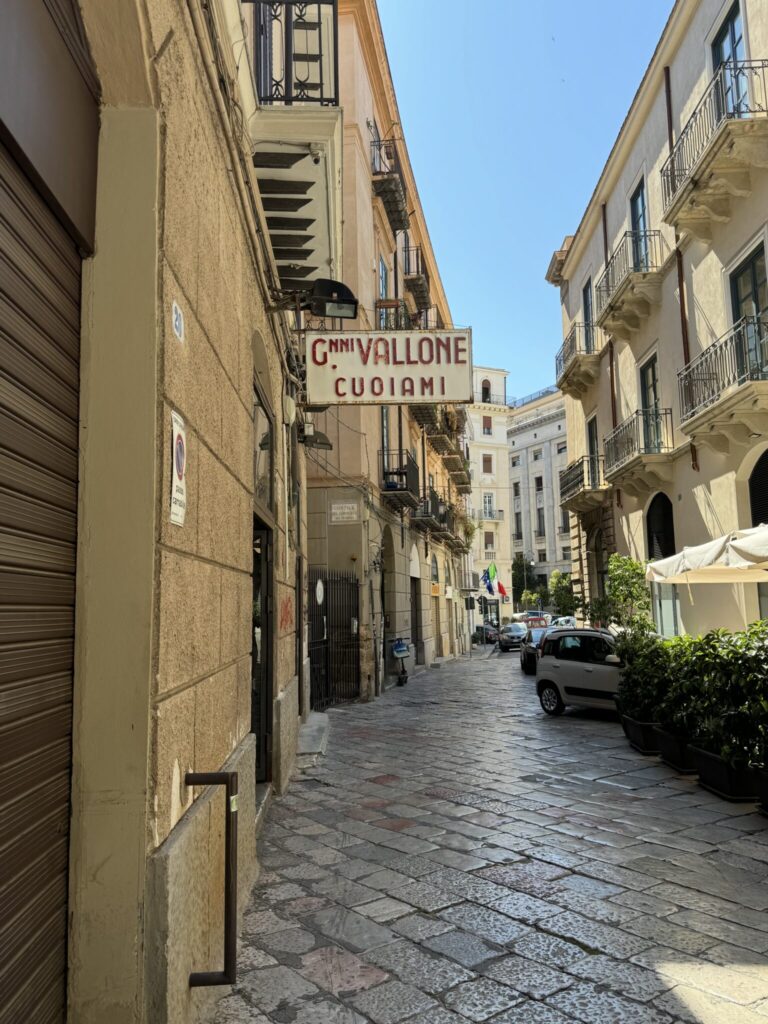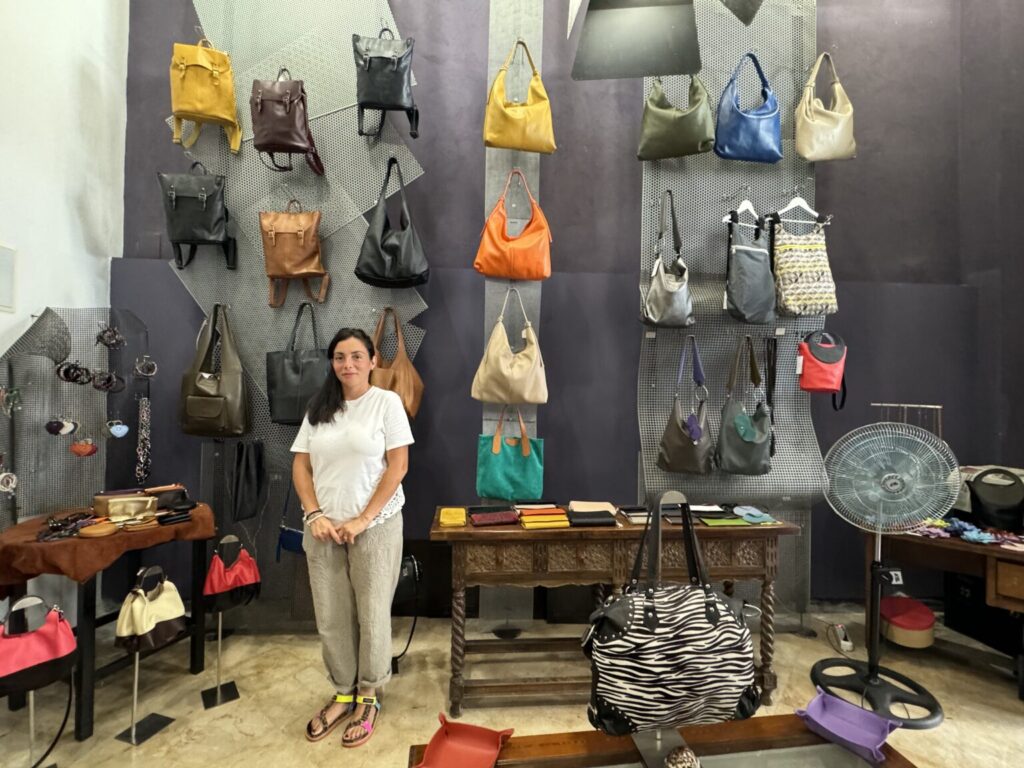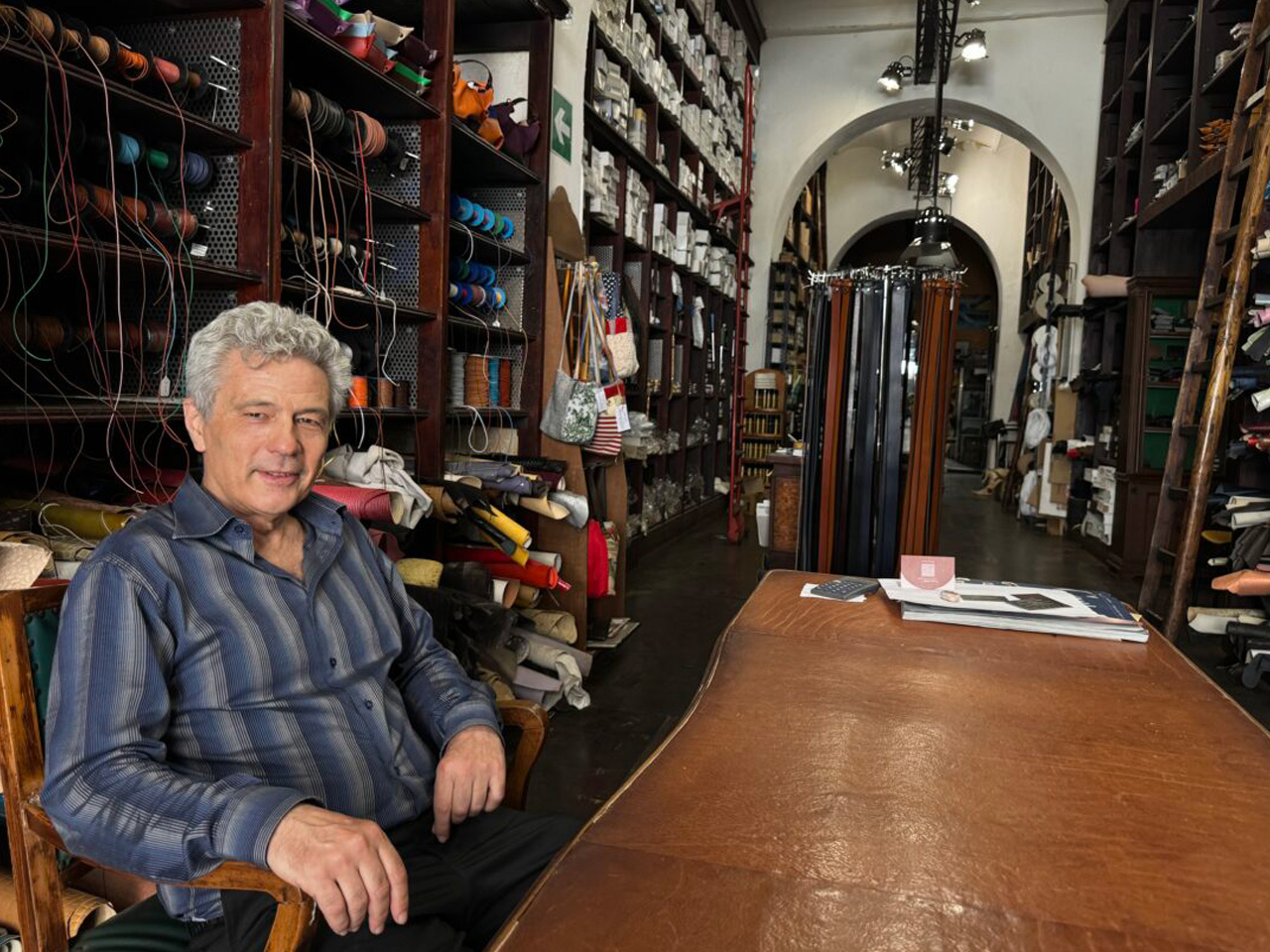At “Giovanni Vallone Cuoiami,” three generations have carried on a family business rooted in authenticity and Italian design
Giovanni Vallone’s boutique is a small corner of craftsmanship and tradition, tucked a few steps away from Piazza Borsa in the historic heart of Palermo. At Via Calascibetta 22, an old sign leads to what many consider a piece of the city’s artisan history.
The origins of the store
The shop, known today as “Giovanni Vallone Cuoiami,” traces its origins back to 1938. That year, Giovanni’s grandfather — who bore the same name as his grandson — purchased the premises and opened a leather supply store that quickly became a reference point for craftsmen across western Sicily.
Born in Prizzi, a town in the Palermo province, the elder Vallone set out to provide shoemakers, saddlers and upholsterers with quality leather and the materials needed for their work.
He sourced vegetable-tanned hides from Tuscany, a traditional process that relies on natural tannins and few chemicals, and resold them in Sicily. Alongside the leather came nails, glue, rubber and every other small necessity of the trade. The business thrived, rooted in the rhythms of artisanship, and for decades it supplied the workshops that kept Palermo’s neighborhoods alive.

The generational transition and Nicola’s legacy
The store later passed to his son Nicola, father of the current owner. Under Nicola, the family business continued in the same tradition. But it was with the third generation that history took a decisive turn.
Giovanni, the grandson, grew up surrounded by the smell of hides and the clatter of tools, but his own aspirations were different. He studied in Milan, qualified as an accountant, and seemed destined for a professional career far from the narrow streets of Palermo’s old center. Then his father died prematurely. Out of loyalty to his family and attachment to its history, Giovanni returned home and took charge of the shop.
It was not an easy moment. The rise of large-scale distribution, the expansion of shopping malls and the spread of disposable goods threatened the survival of small artisan businesses. The old model of resale alone no longer guaranteed sustainability. Faced with that challenge, Giovanni decided to modernize the company and give it a new direction.
He purchased machinery, renovated and adapted the premises, and began producing original pieces under the family name. The shop’s traditional role as a supplier was combined with its own artisan workshop, highlighting the creativity of Vallone’s work.
Meeting with Francesca Zanca
In telling the story, Giovanni is quick to acknowledge someone who became essential in the transformation: Francesca Zanca, a customer who soon became much more than that. “The Francesca-Giovanni duo gave rise to the workshop, which is the most developed part of the boutique and is constantly evolving,” he said. “By using Italian leathers and combining them with our ideas, we create quality products.”
That partnership gave new life to the boutique. What began as a supplier’s shop now functions as a full artisan studio, producing belts, bags and accessories with the same attention to detail that characterized the old trade but adapted to contemporary tastes.

Between chance and conviction
Giovanni describes his career as a blend of fate and choice. “It was chance that marked my entrepreneurial history and my life,” he said. Yet he also stresses the convictions that sustain him. Asked why he continues to invest in small-scale craftsmanship in the face of globalization and mass production, his answer is precise.
“In my opinion, a mass phenomenon is followed by a counter-reaction,” he said. “Today, in addition to seeking the quality they cannot find in products made for large-scale distribution, people aspire to buy garments and accessories that have personality and character.”
That belief has proven right. Vallone and Zanca have carved out their own niche in Palermo’s market, drawing both locals and visitors. Tourists stop in and often ask first if the leather is Italian or local. Residents, meanwhile, rely on Giovanni and Francesca for their everyday needs — a belt, a handbag, an accessory that blends function with design.
The products are deliberately positioned against the luxury sector. The quality is comparable to that of major fashion houses, Vallone insists, but the absence of branding costs keeps prices significantly lower. For many, that combination of authenticity and affordability is the true appeal. “A ‘cool’ thing, if you’ll pardon the expression,” Giovanni added with a smile.
Inside the shop, the atmosphere reflects the balance between tradition and reinvention. The workshop is the living heart of the boutique, always experimenting, always adapting, while the storefront continues to evoke the memory of the city’s artisanal past.
A niche among tourists and Palermitans
For Vallone, resisting the tide of globalization is not only a commercial strategy but also a cultural statement. “Escaping unbridled globalization now also means finding yourself at Via Calascibetta 22 at ‘Giovanni Vallone Cuoiami’ and discovering a corner of uniqueness, quality, and attention to detail,” he said.
Despite the success of the boutique, Giovanni maintains a low profile. He has little presence on social media and makes no effort to market himself aggressively online. That absence, he believes, is part of his strength. “Giovanni is almost absent from social media, but he won’t be upset if we say that he’s happy about it,” he added.

